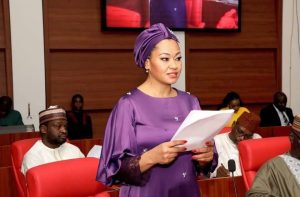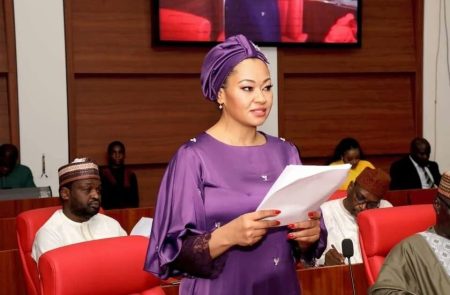The return of Donald Trump to the US presidency in 2025 presents a significant opportunity for Africa’s fossil fuel industry, according to NJ Ayuk, Executive Chairman of the African Energy Chamber (AEC). Trump’s swift reapproval of a substantial loan for a liquefied natural gas project in Mozambique, previously stalled under the Biden administration, signals a potential shift in US-Africa relations, prioritizing energy development over environmental concerns. Ayuk argues that Africa should capitalize on this potential partnership, advocating for a pragmatic approach that recognizes the crucial role of fossil fuels in driving industrialization and economic growth. While acknowledging the importance of renewable energy, he emphasizes that fossil fuels remain essential for Africa’s development aspirations.
Ayuk believes that aligning with Trump’s pro-fossil fuel stance could unlock substantial funding for a diverse range of projects, encompassing onshore ventures, exploratory drilling, and smaller operators, ultimately strengthening Africa’s energy security and creating jobs. The Mozambique LNG project’s revival serves as a prime example of how political will can overcome bureaucratic hurdles and facilitate economic progress. He contrasts Trump’s “drill, baby, drill” mantra with the previous administration’s skepticism towards fossil fuels, urging Africa to adopt a similar mindset and attract American investment.
Beyond oil and gas, Ayuk highlights Trump’s focus on reviving clean coal production as a potential model for Africa. Despite global criticism, coal remains a readily available and affordable energy source for nations grappling with energy poverty. He argues that Africa should leverage its coal reserves to meet domestic needs and even pursue export opportunities, emboldened by Trump’s disregard for international opposition to coal. This presents a unique opportunity for Africa to pursue an aggressive fossil fuel agenda, unburdened by external pressures to prioritize renewable energy sources.
Ayuk advocates for a united “Africa First” approach, mirroring Trump’s own slogan, to expedite oil and gas projects and streamline regulatory processes. He cites the slow progress of Nigeria’s Petroleum Industry Act as a deterrent to investment and development, suggesting that a Trump-inspired focus on efficiency could unlock significant growth. Addressing security issues, such as those that drove US firms out of Libya, is also crucial for restoring investor confidence and attracting foreign capital. Nigeria’s oil and gas sector, hampered by regulatory uncertainty and security threats in the Niger Delta, could benefit from a “drill, baby, drill” mentality to accelerate reforms and attract American investment.
Ayuk emphasizes the availability of resources and a supportive ally in Washington, urging African leaders to seize this opportunity and resist pressure from anti-carbon lobbyists. He envisions Trump’s second term as a pivotal moment for Africa’s fossil fuel industry, forging a partnership with the US based on shared energy abundance. With a four-year window of opportunity, he calls for decisive action to develop Africa’s resources, emphasizing that such a chance might not present itself again soon. He stresses the importance of taking advantage of this alignment of political will and economic opportunity.
The core of Ayuk’s argument rests on the premise that Africa’s development needs are paramount and that fossil fuels offer the most realistic pathway to industrialization and economic growth. He champions a pragmatic approach, recognizing the long-term transition to renewable energy but emphasizing the immediate benefits of utilizing readily available resources. His call to action is directed at African leaders, urging them to capitalize on this opportune moment and prioritize their continent’s energy security and economic prosperity. He paints a picture of a potential future where Africa emerges as a major player in the global energy landscape, partnering with the United States in a shared vision of abundant energy resources.














